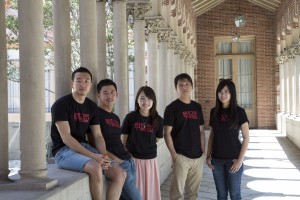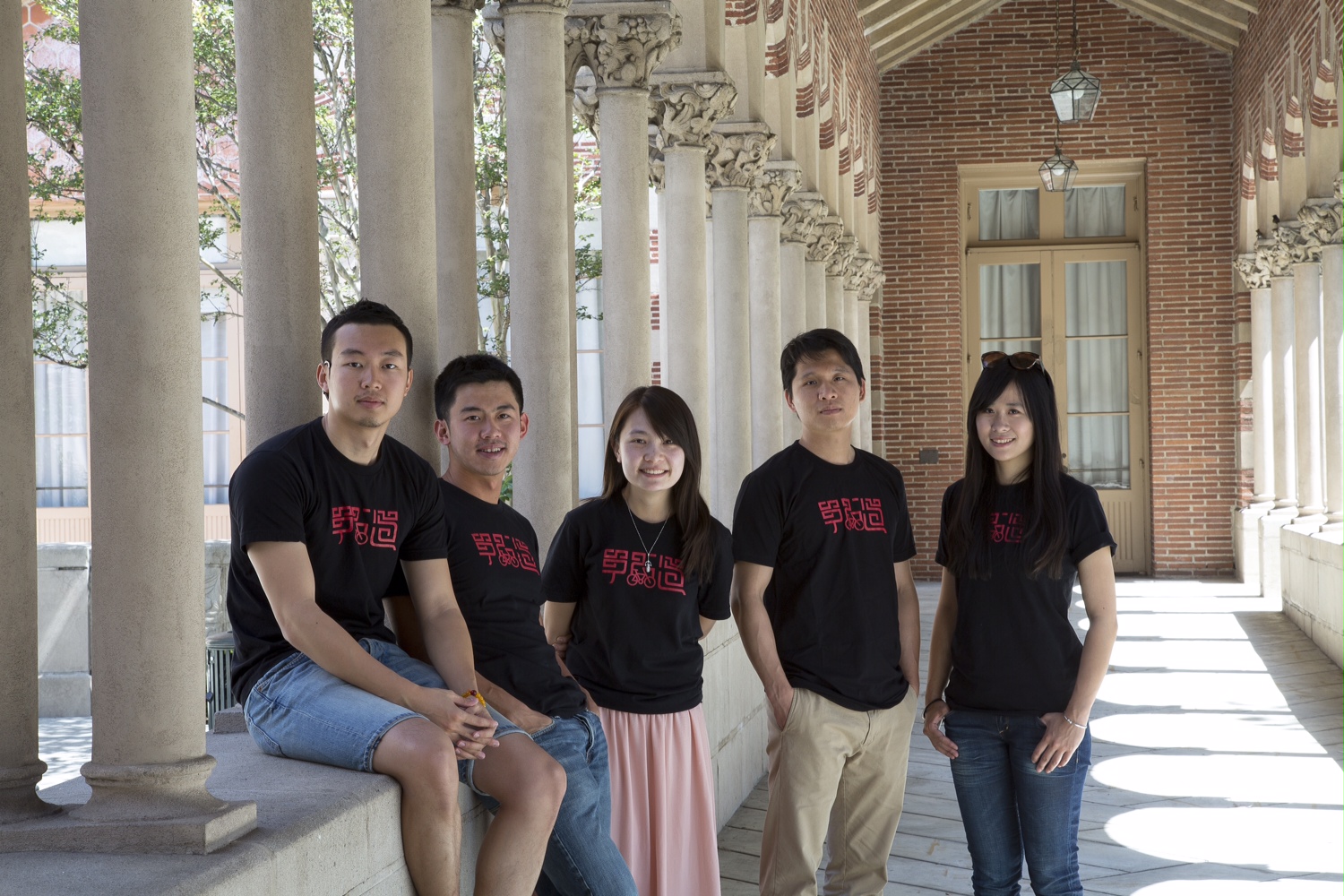Graduate students launch charity campaign in China
This summer, a team of international graduate students will be launching a charity campaign known as DanXingDao or OneWay, which hope to collaborate with companies and students across the world to raise funds to provide lunches for hungry children living in the undeveloped areas of mainland China.
“I think it’s a simple and meaningful campaign,” said Yeming Chen, a MFA student in film production at the USC School of Cinematic Arts. “I think the effort we put into this will make something big and change the situation in China a little bit.”

Weiyi Chen, Jiangyang Zhang, Xueqiao Ma, Yeming Chen and Yuchi Che work with OneWay to provide lunches for children in undeveloped areas of China. — Photo courtesy of Jiangyang Zhang
In order to effect this change, OneWay has utilized a number of social media giants, such as Facebook and the Chinese sites Weibo, Renren and WeChat. It invites interested parties to like its respective pages, then share pictures with the tag, “I’ve discovered China in the world.”
In addition, participants can upload and email videos to OneWay describing their own philanthropic efforts. For every “like,” picture, or video that OneWay receives, its partner companies will donate money to Free Lunch for Children, one of the leading charity organizations in China.
“We welcome everyone’s participation,” said Jiangyang Zhang, a Ph.D. student in electrical engineering at Viterbi School of Engineering. “The more Facebook likes, the more online participation we get, the more likely more companies are going to join and do the donations.”
OneWay is also hosting Bike Across America, an odyssey that will span two months and 3800 miles from San Francisco to Washington, D.C. For each kilometer traveled, participating companies will donate five lunches.
“We can do something meaningful for the children in China and in the meantime we can do the sports we love,” said Yuchi Che, a Ph.D. student in electrical engineering at Viterbi expressing her enthusiasm for the Bike Across America event. “We can combine these two together [and] that’s very exciting.”
“After we came to the US, we were influenced by what we saw over here,” added Zhang, “A lot of people are doing these kinds of marathons to cover costs for supporting charities.”
The team is composed fully of Chinese students, many of whom come from a variety of graduate programs at the university. Other universities are also represented, such as Chinese students from the University of British Columbia and the Pratt Institute.
Though there are no specified positions in OneWay, each member works to contribute according to his or her own skills. As a group, they hope to expand awareness, not only amongst students of the same background, but also on an international level.
“I think the most important part is is that all the people in the group want to do something about this,” said Xueqiao Ma, a M.A. student in Journalism at the Annenberg School for Communication and Journalism. “They really want to help the students [in China]. They really want to tell the Chinese students overseas; we should do something for China – we should do something.”
Zhang, one of the founders of OneWay, has volunteered as a teacher in impoverished areas, and he described his first-hand knowledge of the hardships that face the many children left in the shadow of China’s fast-growing economy.
“In rural areas, a lot of children cannot have lunch because they live very far away from schools,” Zhang said. “They can only drink…water.”
The OneWay campaign will officially be launched in May 2014 and will end September of the same year. During that time, the team hopes that it can catalyze a large number of people who are willing to get involved. The charity scene in China is still in its early stages, and potential partner companies need voices to rouse them.
“The truth of the situation is it’s really, really hard to find companies who want to pay money,” said Ma. “We have one or two. We still need more. We still need more attention to tell people we’re doing this – we’re doing something good.”

